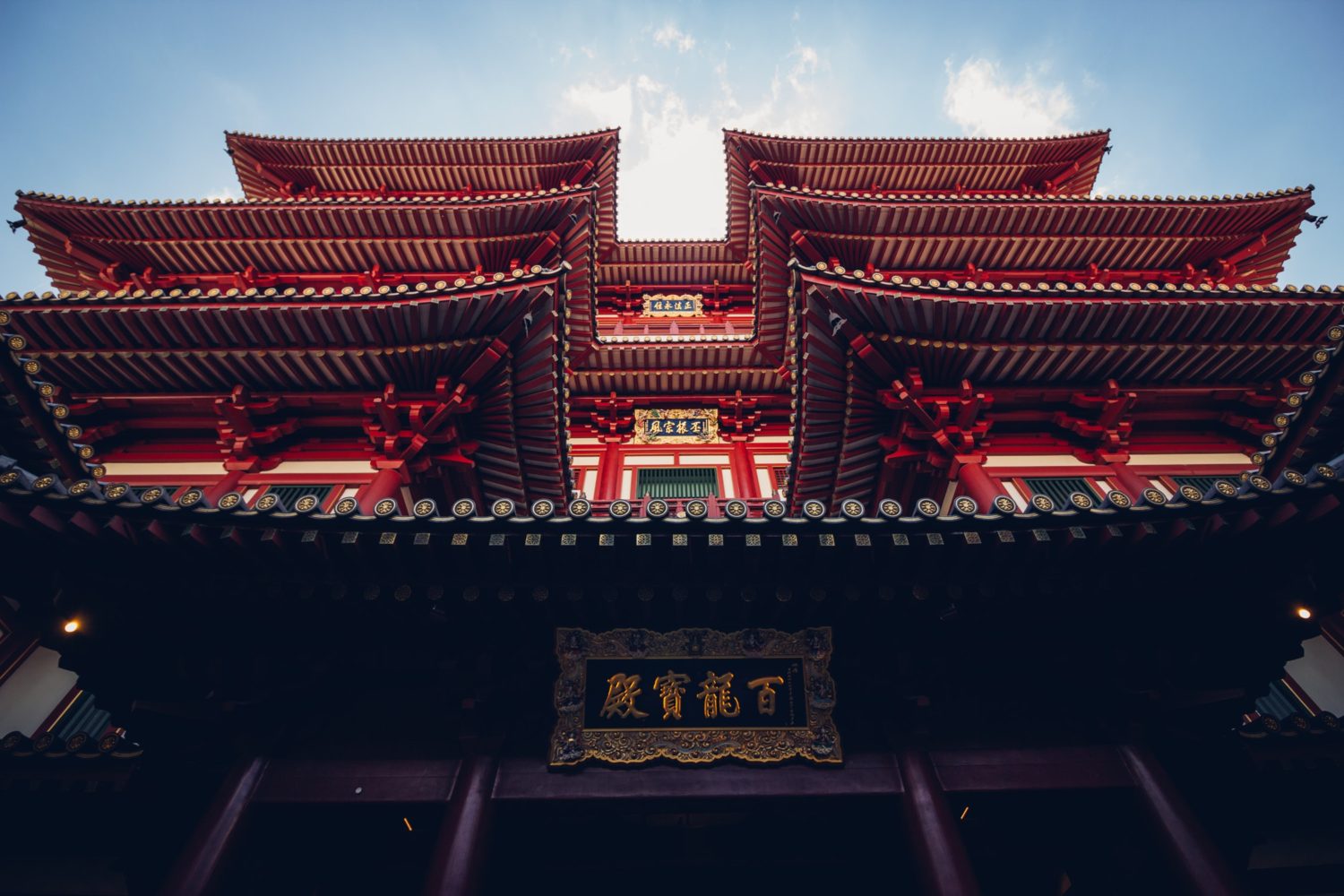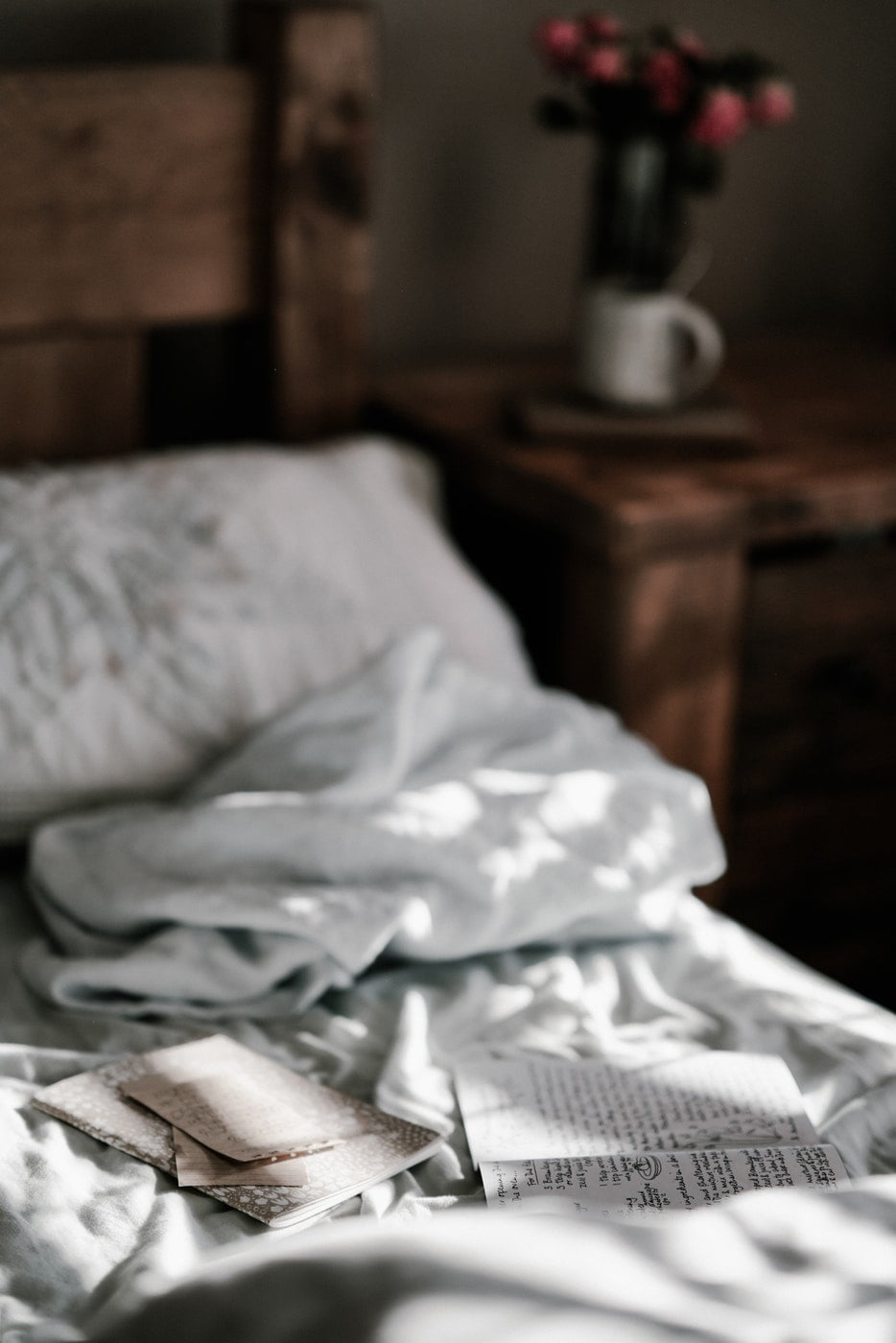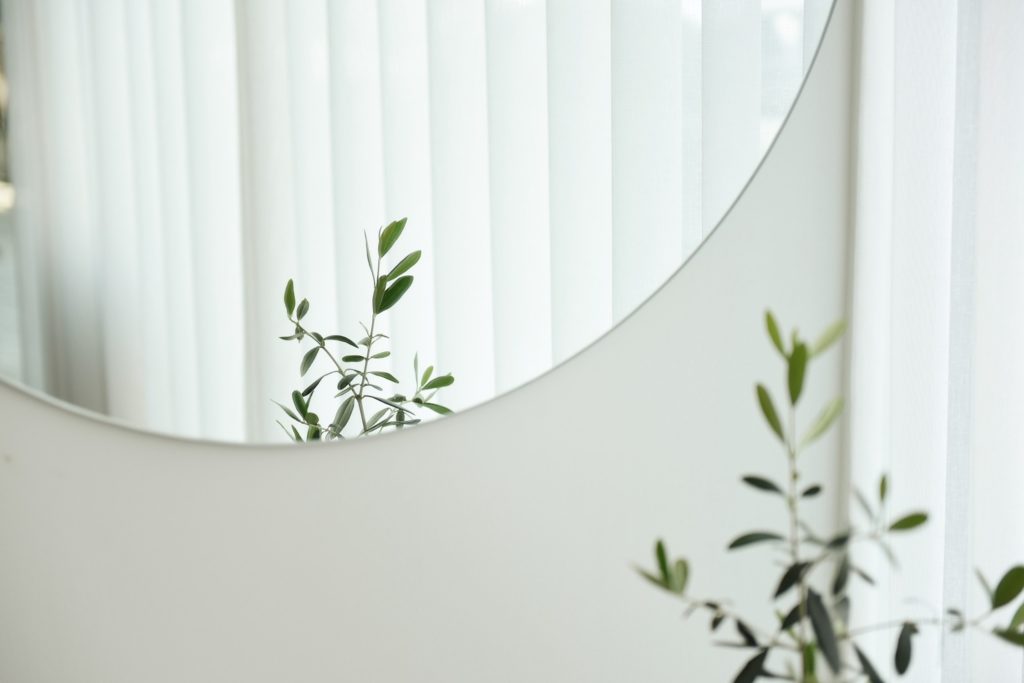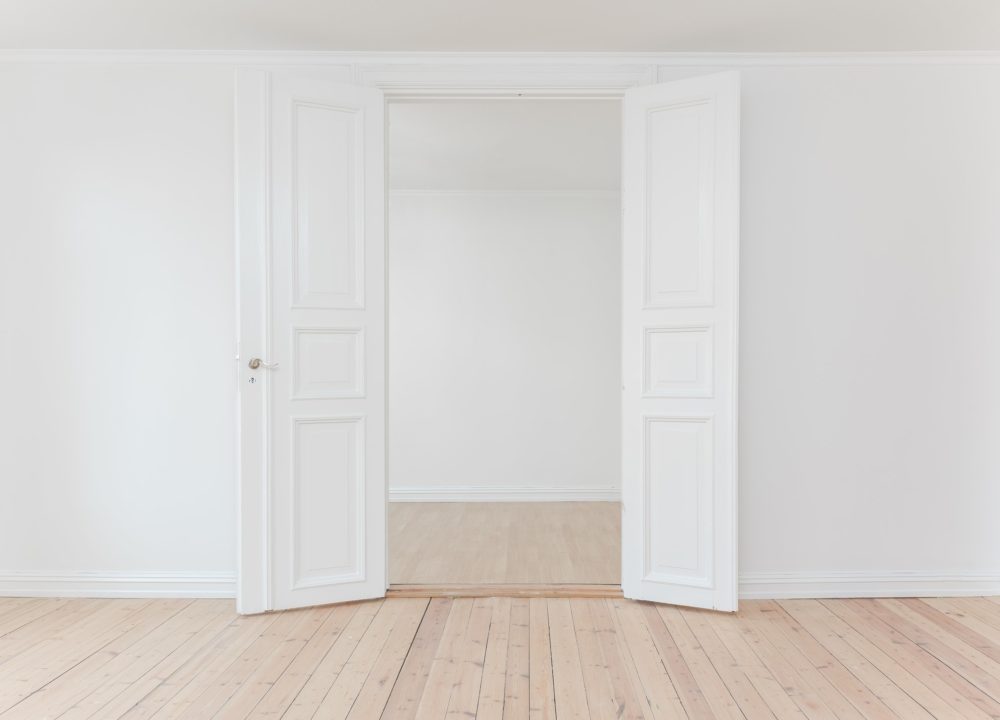Feng Shui translates literally to “wind-water” in Chinese. It’s a discipline that dates back to 4000 B.C.

Though it’s an ancient philosophy, its traces can be found even in our modern world. Today, the most prominent and lively discussion about feng shui happens in the field of architecture.
While the influence of feng shui can easily be witnessed in the Chinese landscape, it has made its way into western architecture as well. Many famous and prominent architects of this generation can be found trying to incorporate these ancient principles into their creations.
In this article, we are going to discuss the basic principles of feng shui and how you can alter your dwelling according to it.
Feng Shui Architecture 101
The Mysterious Energy Called Chi
Feng shui is a Chinese pseudoscience that deals with the control of “invisible forces” that govern our Universe and hence, us.
Its goal is to use energy, called chi, to harmonize individuals to their surroundings. And according to it, this mysterious flow of positive energy, sheng chi, can be achieved by manipulating the elements around you.
Conclusively, it shows how to use the five elements - wood, fire, earth, metal, and water - to maximize positivity in your life through your surroundings while also reducing the bad energy, si and sha chi, around you.
Basic Principles of Feng Shui
Before we start discussing how you can make changes in your home to affect the flow of chi, we are going to talk about how feng shui is applied to large scale architecture.
In ancient Chinese civilization, it was used to orient significant buildings in a specific manner to maximize the flow of sheng chi.
But historians suggest that it was not just limited to important structures, and that similar ideas were used in making common dwellings and public places as well.
-
Leaning against Mountains and Facing Waters
One of the key things about feng shui is to construct buildings in such a way that its back is against the mountains and its front is towards the water.
The ancient capital city, Xi’an, for example, was surrounded by nine mighty mountains and eight rivers in China. As a matter of fact, for this particular reason, it was considered to be one of the most auspicious cities in its time and 13 dynasties put it as their capital city.

Image via Dahee Son @daheedarlingson
-
Symmetry
Feng shui architecture stresses heavily on symmetry. Hence, ancient Chinese cities were constructed carefully with symmetry in mind.
One of the most famous examples of that is China’s Forbidden city which is built in a bilaterally symmetrical fashion. At the core of its design is a north-south axis line around which the entire palace is built.

Image via Melvin Tan @melvintcs
-
Curves
Curves also play an important role in feng shui architecture. It symbolizes vitality and that’s why you can observe curves in almost all Chinese architecture - bridges have arches, corridors are winding, and roofs have curves around the edges.
The mausoleum complex of Qing Dynasty has small structures in front of large ones - often, south-north buildings constructed at the front or back of east-west buildings - to emulate some sort of a curve.
How to incorporate the principles of Feng Shui in your house?
Of course, the design principles, that we talked about in the previous, can’t be applied to your modern-day already-built apartment or house.
But there are several factors to the design of the interior of your home (that you have control over) which you can change to achieve the maximum flow of positive energy.
Identify the problems
There must be certain rooms in your house that you maintain better than the others. Maybe you take care of your kitchen and study room really well and tend to spend a lot of time there but meanwhile, ignore your bedroom and laundry room.
The key understanding that you should have before implementing feng shui in your home is that your house is a whole being. To maintain the positive energy, you’ll have to take care of the entire space of your dwelling.
There shall be no discrimination in that regard. So you need to first identify the rooms that need the most amount of work and put it at the top of your priority list.
The Hot Spots
The most important things to consider when implementing the principles of feng shui are the front door and the staircase placement.
To get an idea of what we are talking about, imagine a gush of water flowing inside your house through the front door. This is the invisible energy, chi. You will have to direct this flow of water in such a way that reaches each and every room in your house.
Anything that prevents this flow of water from doing so has to be taken care of. Otherwise, they can create pockets of bad energy, also known as si chi.
Any form of clutter or disorientation can be the reason behind negative energy in your house. Moreover, there can be fundamental problems in your house that can disrupt the flow of positive energy.
For example, if you have a staircase right in front of your front door, then the flow of energy will get directed through it which will leave parts of your home devoid of sheng chi.
In that case, you can use some mirrors or additional furniture to diffuse the flow. There are plenty of other solutions to the factors that disrupt the flow and we’ll discuss more in depth about the remedies later in a separate section.
Feng Shui Advice for Some Common Rooms
There are some tips and tricks that anyone can apply to make their house more in tune with the principles of feng shui. In this section, we are going to suggest a few alterations that you can make to some of the common rooms of your house to achieve a better flow of sheng chi.
-
Home Office
In your home office, the placement of the chair is the most important thing. Try to place your chair in the commanding position of the office.
The commanding position of any room is where it’s the farthest from the entry point and it’s not in line with it. Preferably, it should be surrounded by strong walls so that it can be a pocket of positive energy.

Image via Lee Campbell @leecampbell
-
Bathroom
Keep the bathroom doors closed when not in use and keep the toilet seat down. Otherwise, the bathroom will act as the sink for the flow of good energy and will sink it out of the house.
In ancient China, water was considered to be a symbol of wealth and prosperity, and if you keep your bathroom open all the time, then this imaginary flow of water (positive energy) will drain through it.
-
Baby’s room
If you have a baby then principles of feng shui can help keep your baby healthy and happy. Place the cradle in a commanding position, i.e., farthest from the door and not in line with it. Keep it away from electronics because electromagnetic waves can hamper the positive energy from getting to your child.

Image via Annie Spratt @anniespratt
How to feng shui in your bedroom?
The bedroom is such a key part of anyone’s house that we decided to make a separate section about how you can design your bedroom to be more in-line with feng shui. Here are some tips and tricks to keep in mind when altering your bedroom.
- The right bed
For being in harmony with your surrounding and getting plenty of good energy while sleeping, you will have to, first, get the right bed for yourself.
The bed should have a solid headboard and good quality mattress. Additionally, the bed should have ample frame height and no storage underneath. It is also preferable to get a bed with no sharp corners.
- The right placement of the bed
First of all, place your bed in the commanding position of the room. And make sure that it’s leaning against strong walls to make a pocket of sheng chi.
Keep the bed away from walls that have electronics on it. Electromagnetic fields repel good energy, so, keep TVs and other electronics on the opposite side to your bed rather than on the sides.
Preferably, if possible, orient the bed in-line with your most lucky direction. Of course, you’ll have to experiment and try out different directions for that to happen.
But keep in mind not to compromise on the commanding position or anything else while orienting it in the right direction because it’s more of an added bonus than a must.
- Maintaining the surroundings of your bed
Balance the space around your bed correctly. That implies that you can’t have just one night stand beside your bed - you need at least two. They don’t have to be identical or even similar.
You can be creative and try different kinds of nightstands but try to keep a healthy balance in the area surrounding your bed.
More importantly, don’t keep objects with sharp edges and corners, that point at you, around your bed. Otherwise, attacking energy or sha chi will be focused on you.
If you have a table clock or a lamp on your nightstand, make sure that is a rounded piece. And the same goes for the foot table.
Feng Shui Remedies
There are certain special objects that can help you achieve better feng shui. These objects are called feng shui remedies or cure.
You can use these objects to aid the flow of positive energy in your house. Let’s have a look at it, and understand how these objects work and behave.
- Mirrors
Mirrors are the most helpful objects in achieving feng shui. They can activate, expand, circulate and deflect energy.
Right placement of mirrors around your house can result in a significantly better flow of sheng chi. Use mirrors to spread more natural light and reflect nature in your home for the best results.

Image via Suhyeon Choi @choisyeon
- Crystals
Crystals are amazing at modulating energy and hence, help you control it. Use it to eradicate pockets of si chi in the house by refracting more sunlight and positive energy.
- Water
Chinese people consider water as a harbinger of wealth and prosperity. So, according to feng shui, if you can incorporate elements of running water in your house, it’s bound to generate more positive energy.
You can try fountains and other waterwork elements to enhance the tranquility and serenity in your dwelling.

- Symbols
Symbolic objects like the Buddha, lucky bamboo, dragon statues, and talismans represent sheng chi.
You don’t have to put a lot of gaudy items in your house. Remember, a free and open house is always better for feng shui. But you can use colors, art pieces, and a few symbolic objects to enhance the sheng chi.
- Natural objects
Try to place potted plants and other forms of greenery in your house. But remember not to compromise on having a clutter-free environment in that endeavor.
Apart from greenery, you can also plant elements of nature in your house in the form of aquariums.
These natural elements enhance the positive energy and help it to spread in more remote locations of your abode.
How to alter a small space?
Even if you are a student who lives in a tiny apartment or a dorm room, feng shui can be implemented in your life.
Principles of feng shui can help you achieve tranquility and serenity even in the highly stressful life of a student.
It’ll be more than design and will really help you in being more peaceful when you are working.
So here are some tips that can help incorporate feng shui in a small space.
- Manage the most important piece of furniture
To gain full control of your space, you should place the most important furniture - usually the bed - at the command position of your room.
- Make multi-purpose rooms more manageable
If you have a multi-purpose room, then use plenty of rugs and curtains to divide the place. Each activity center should be as separated from the other activity centers as possible.
Most importantly, make sure to visually separate the working area of your apartment from the sleeping area.
The entryway of your house should be clear and clutter-free to ensure the maximum flow of positive chi energy.

Image via Philipp Berndt @philberndt
- Have a consistent color scheme
Try to buy items and furniture in accordance with a central color scheme of your liking. Of course, you have the liberty to vary it with texture and shading.
A piece of good advice will be to employ Feng Shui’s five elements in your house with colors, texture, and shape.
- Reduce the visual noise
Try to keep the number of items on view to a minimum. Don’t get hesitant to get rid of unwanted mementos and objects. Try rotating your keepsakes that are to be kept on view, so that, at a given time there’s little to no visual noise.
- Make most of your storage
Use the available space wisely to tuck away your belongings as much as possible. In a small space, we recommend going vertical if necessary. Measure every nook and cranny of your house to ensure that you can manage the clutter in the best way possible.
- Use mirrors
Make use of mirrors to enlarge your living space. Reflect the natural elements, like green plants and sunlight, and the things you love to look at.
It’ll help you bring in good feng shui in your house.
- Use crystals
Crystals are immensely helpful to store good energy and reflect it around the house. Use crystals wisely to illuminate your house with natural light during daytime.
- Clean up daily
The key to bringing positive energy into the space around you is by keeping your surroundings tidy. Make it a habit to clear up your clutter every day.
It is important to honor your living and working space by making cleaning sessions a part of your daily routine.
Conclusion
That’ll be all for this article. In this article, we have discussed some of the basic principles of feng shui and a few methods with which you can achieve a better flow of positive energy in your house.
A good sheng chi flow will help you harmonize better with your surrounding area and will make you healthier and happier.
So, with that, we hope this article helped you in a meaningful way and thank you for reading.
